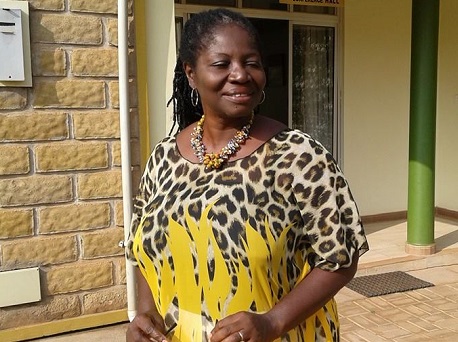
IEA assesses level of women’s participation in development and decision-making
The Institute of Economic Affairs (IEA) has conducted a study in the three regions of the north (Northern, Upper East and Upper West regions), to assess the level of women’s participation in economic development and their involvement in decision-making.
The study was also to unearth and highlight the barriers and challenges facing women in those regions that impedes their effective participation in the Ghanaian economy and the nation’s development process, so as to map out the needed strategies to ensure the empowerment of women in Ghana.
The research was conducted in May last year in collaboration with the Northern Sector Action and Awareness Centre (NORSAAC), and Community Development Alliance (CDA), both non-governmental organisations (NGOs), with funding and technical assistance from the Danish International Development Agency (DANIDA).
The findings of the research, made known at a forum held in Tamale last Thursday, have revealed that most women were marginalised and disadvantaged in all sectors of the economy and the developmental process.
It also revealed that women in the three regions of the north had limited access to economic resources, as well as low participation in decision making, though they contributed tremendously to the socio-economic development of the country.
A documentary on women as economic actors in the three regions of the north as part of the research was also unveiled at the forum.
Documentary
The institute commissioned the documentary as part of the research to capture the real life situation of women and to also highlight the challenges, as well as opportunities that were available for women to enable them to participate effectively in the economy for maximum benefits.
The forum organised by the IEA on the theme: "Women as Economic Actors,” was aimed at attracting the attention of policy makers and also to seek a review of the policies where women are concerned to promote inclusiveness, reduce poverty and promote sustainable economic development in Ghana.
Speaking to the media at the forum, a Research fellow at the IEA, Professor Ransford Gyampo indicated that the study was also to help identify women who had limited access to economic resources with low participation in the development process.
The study, he added, revealed that women had limited access to economic resources, as well as low participation in decision making, and, therefore, called for investment in women’s activities to ensure economic growth.
![]()
He said more resources should also be made available to women without any discrimination and reiterated the commitment of the institute to ensuring that policy makers and community leaders, as well as those involved in decision- making, adhered to the grievances of the women in the country.
Why the study?
Prof. Gyampo stated that the institute undertook the survey to promote inclusiveness, reduce poverty and promote sustainable economic development in Ghana, adding that it revealed that majority of women who constituted 52 per cent of the Ghanaian population were into food crop production and they received less attention from stakeholders, since economic policies did not adequately address their needs.
A lecturer at the Department of Family and Consumer Science of the Faculty of Agriculture, University for Development Studies (UDS), Ms Patricia Fafa Formadi, for her part, said women were noted to be hardworking in society but financial constraints continued to hamper their activities.
She called on the financial institutions to come out with gender-sensitive financial products with less interest rate, to enable women, especially those who are involved in trading, agro-processing and farming activities, to access resources that would enhance their businesses.
Ms Formadi stressed the need for traditional leaders and stakeholders to make more lands available to the women for their agricultural productions without any hindrance and advocated that women should be given more capacity training in technology to adapt to modern trends to produce to meet the demand of the market.
Views
Some stakeholders at the forum called on the IEA to also collaborate with those in authority in the political front to involve the women in policy making to address the needs of the women in the three regions of the north.
They appealed to IEA to also engage the men in the three regions of the north in their programmes to sensitise them to the need to support the women to achieve their fullest potentials and dreams.
